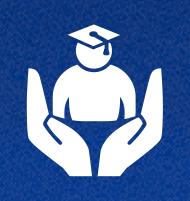What is a Masters Student (of Counselling/Psychology/Social Work)?
All clinical counselling programs require their student to complete one or more field placements (called practicums) in order to meet the requirements for a Masters in any kind of clinical work. The title of the master's program may vary (e.g. Masters of Psychology, Masters of Counselling, Masters of Social Work, etc.), but in each case the practicum goal is to allow the student to gain experience working in a psycho-therapeutic environment.
The amount of prior 'counselling' experience a student has before starting their Masters training can vary quite a bit. Many students enter a master's program with little or no prior experience in providing therapy. Some may have co-facilitated a psycho-educational group (e.g. parenting strategies, anger management techniques), or worked as an addictions or community support counsellor. On occasion some Masters students have considerable prior experience providing counseling due to previous work or life experience.
SO HOW MUCH EXPERIENCE DOES MY MASTER'S STUDENT HAVE IN COUNSELLING?
Master's degrees are generally two years in length. If there is a practicum in the first year it is often relatively short (75 - 150 hours). In this practicum students mainly observe licensed clinicians, and may assist in running a psycho-therapeutic group (e.g. people with depression, clients dealing with trauma histories) with an experienced therapist. The idea of this practicum is to help the student to make connections between academic learning and practical application as demonstrated by others.
The major practicum generally occurs during the second year in conjunction with coursework, or occasionally in the third year as a 'stand alone' component. If program has a two practicum requirements, students are generally discouraged from doing both in the same place. Having different practicum placements increases the opportunity for the student to be exposed to a wider range of clients and mental health concerns. Students are also discouraged from completing practicums at their work-site (if they are attending school and working at the same time). While a job-site practicum may seem to be a good solution for the student as it is convenient for them, it can result in dual relationships and conflict of interest difficulties for the student, employer and supervisors.
The major practicum may range from 300 client service hours to 600+. The number of practicum hours overall, and the number of hours that must be spent in direct client service vary from program to program. As with the initial practicum, a certain number of the major practicum hours must be spent in supervision (usually a combination of individual and group based), ongoing learning, and administrative work. Most practicums require at least half the hours are direct service work. Direct service work may include: observing in the room with a more experienced clinician; co-facilitating individual, couple or group sessions; or the student working therapeutically 1:1 with the client.
SO WHAT IS THE BOTTOM LINE?
Master's students are "learning clinicians". They are in the process of completing the foundation of their education and training in counselling. They can only work in supervised settings. If your master's student clinician is at the beginning of their program, you may be one of their first ever clients. If they are nearing the end of their program they will likely have several hundred direct service hours of experience.
Practicum counselling positions are generally unpaid. This means that low cost and sliding fee scale agencies often utilize master's students on their counselling teams in order to provide the low cost services they offer. Any fees paid for counselling delivered by master's students is typically retained by the agency to pay for the student's supervision and overhead costs (e.g. rent on therapy space, supplies, admin support, etc.).
Sophie and Madison are our Master’s Level Students

